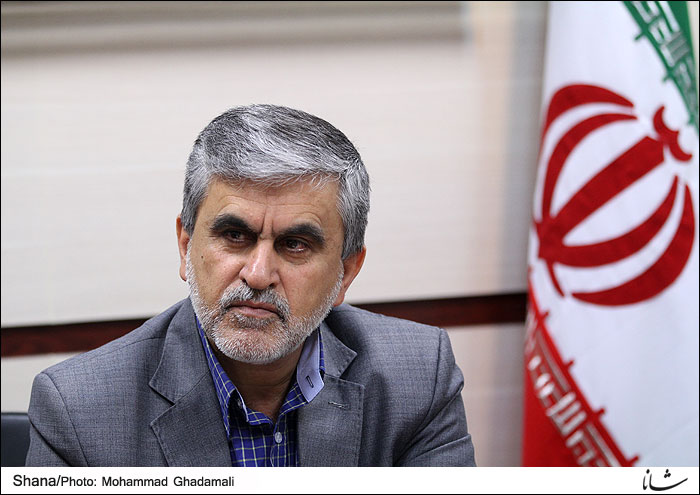Shana-I don’t know why,
but some media believe that the gasoline produced by petrochemical plants has
no problem and at the same time they argue those who prefer gasoline
importation seek their own benefits; could you tell us more about these
augments. Also tell us how much gasoline has been imported as of the beginning
of this Iranian calendar year on 21st March?
Qamsari: The National Iranian Oil Products Distribution
Company (NIOPDC) called for the import of 10 million liters per day over the
first two months of the year, but actually daily gasoline imports hit 6 million
liters.
Shana-Please tell us
about the quality of the gasoline the country imports. How much are they close
to standards?
Qamsari: When compared with the gasoline produced in
petrochemical plants, imported gasoline has less aromatic and cyclic compounds,
the content of its sulfur stands at 150 ppm and the content of its benzene is
less than 2 percent. Similarly, it’s a high octane gasoline, 95 to 98 octanes,
above the normal standards which is 92 to 95. Besides NIOPDC has developed some
criteria for the gasoline used in the country which authorize 50 ppm and the content
of its benzene just one percent. Considering these specifications, the country
imports a kind of gasoline enjoying higher standards than those produced by
petrochemical plants.
Shana-How well is the
gasoline produced by petrochemical plants?
Qamsari: When an industrial structure has not been built
for producing a specific product, normally it can neither produce a
qualified output nor can it guarantee its quality. The same is true about
petrochemical plants. Petrochemical plants have been built not to produce
gasoline. So when they decide to do so cyclical components' residue remains in
the product to a great extent which is dangerous. You can’t find anywhere in
the world that petrochemical plants are involved in producing gasoline.
Let me add another
point. Air pollution in populated cities of the country was not solely due to
distribution of the gasoline produced by petrochemical plants. Substandard and
old vehicles with flows in combustion were also partly responsible for air
pollution.
Such vehicles with any
kind of gasoline could cause pollution so we could also blame the car industry
for the problem. Furthermore, the great number of vehicles in the cities makes
air pollution inevitable. Generally, a variety of elements are responsible for
the problem, even though we cannot ignore the role petrochemical plants in air
pollution by producing substandard gasoline.
Shana-Anyway, slapping
sanctions against the country made gasoline production at home necessary. Do
you think if the country is faced with a similar situation in the future, it
will turn to petrochemical plants for producing gasoline?
I am not to deny the
possibility that we may face similar situations in the future. In that case, we
may do what we did in the past. But even if similar circumstances arise we
prefer to monitor the process of gasoline production and consumption and will
not allow substandard gasoline to be used.
Shana-Despite the
quality you mentioned, why some petrochemical plants insist on the good quality
of the gasoline they produce?
Qamsari: I think it is normal, because some petrochemical
plants which are engaged in producing gasoline are private sector companies and
it is natural that they defend the kind of gasoline they produce.
Shana-Apart from
sanctions, do you believe in self-sufficiency in gasoline production?
Qamsari: Of course, gasoline is a strategic commodity and
self-sufficiency in this regard is crucial. But these days self-sufficiency has
a different meaning and serves different goals when compared with several
decades ago. While producing a product at home is very expensive and at the
same time, we can import it with very lower prices, in this case
self-sufficiency is not the best option, because it is not economically
justifiable. I want to stress once again that we consider self-sufficiency in
gasoline crucial. Let me announce that fortunately we are not much dependent on
gasoline imports.
Shana-How much is the
country dependent on imports?
Qamsari: While daily gasoline consumption stands at 70
million liters, gasoline imports hit 10 million liters per day at most during
the period. Last year the country imported about 4 million liters of gasoline
per day so we are not much dependent on imports. Besides, three oil refineries
are under construction. When these refineries come online, self-sufficiency in
production of high qualified gasoline is not far from reach.
Shana-From which
countries do we import gasoline?
Qamsari: Asia is the main provider. NIOPDC announces the
specifications of the gasoline it plans to import and we convey their call to
the related trade companies. Due to sanctions, we cannot buy gasoline directly
because we are facing problems in view of transferring money.
Shana-Why don’t you hold
a tender?
Qamsari: While sanctions are still in place, we cannot meet our gasoline needs through bidding. Furthermore, you usually hold a tender when supply potentials go beyond demand. Prior to imposing sanctions, there were many companies selling gasoline to Iran but they halted the trade afterwards. Here I would like to announce clearly that if any company is ready to meet our needs to euro-4 gasoline based on competitive prices we are ready to enter into talks.


Your Comment